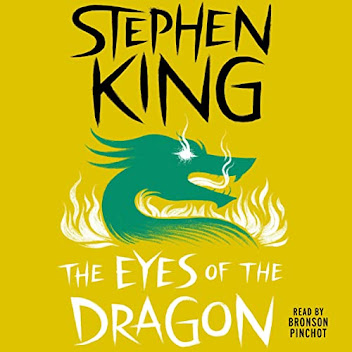Who Really Cares: The Surprising Truth About Compassionate Conservatism by Arthur C. Brooks
One of the most interesting and profound books I've read this year
Published in 2006 by Basic Books.
I'm a high school teacher that founded and sponsored the local Key Club (secular volunteer organization) at my high school for 7 years. My wife has been a professional volunteer coordinator for more than 15 years, in both religious and secular settings. There is nothing in these statistics that contradict our personal experiences.
So, what does Brooks say in Who Really Cares? "The conventional wisdom runs like this: Liberals are charitable because they advocate government redistribution of money in the name of social justice; conservatives are uncharitable because they oppose these policies. But note the sleight of hand: Government spending, according to the logic, is a form of charity. Let us be clear: Government spending is not charity. It is not voluntary sacrifice by individuals." (p. 20)
Brooks marshals a horde of facts to prove the point that the more politically liberal the individual, the community, the state, the country or the continent, the less likely that the individual, community, state, country or continent will be to donate to private charity in any form. Meaning, if a state voted for Bush in 2004, it generally gave more than a state that went for Kerry. The United States gives light years more to private charity than the nanny state European Union.
Why?
Generally speaking, it's because the general mindset is that there should be a government program to take care of that. This attitude affects volunteerism rates, monetary giving and even in-kind donations like giving blood or donating items to Goodwill. They are even more likely to give back extra change when the cashier makes a mistake.
Brooks breaks it down by income levels, religious affiliation, political party affiliation and even by race. The most determining factor is political affiliation and one party is way more religious than the other one so Republicans, specifically Conservative Republicans who go to church on a regular basis are far more likely to give money, time or in-kind goods than anyone else. Religious Democrats give more than any other sort of Democrat and more than many types of Republicans. The most generous of all? Working poor Conservatives - the old Reagan Democrats. Ironically, welfare payments suppress giving. People who were formerly working poor gave less when they accepted welfare, even if their income levels were comparable.
Brooks is quick to note that these are trends, not absolutes. There are religious conservatives who do not give and ultra-liberal, ultra-secularists that give plenty. But, his data does show certain trends.
Why?
"For many people, the desire to donate other people's money displaces the act of giving one's own. People who favor government income redistribution are significantly less likely to behave charitably than those who do not...For many Americans, political opinions are a substitute for personal checks; but people who value economic freedom, and this bridle against forced income redistribution, are more charitable." (p.55)
Brooks backs it up with 23 pages of data in an appendix and a healthy set of endnotes.
I rate this book 5 stars out of 5.
Reviewed on December 22, 2009.
This book can be found on Amazon.com here: Who Really Cares: The Surprising Truth About Compassionate Conservatism by Arthur C. Brooks
So, what does Brooks say in Who Really Cares? "The conventional wisdom runs like this: Liberals are charitable because they advocate government redistribution of money in the name of social justice; conservatives are uncharitable because they oppose these policies. But note the sleight of hand: Government spending, according to the logic, is a form of charity. Let us be clear: Government spending is not charity. It is not voluntary sacrifice by individuals." (p. 20)
Brooks marshals a horde of facts to prove the point that the more politically liberal the individual, the community, the state, the country or the continent, the less likely that the individual, community, state, country or continent will be to donate to private charity in any form. Meaning, if a state voted for Bush in 2004, it generally gave more than a state that went for Kerry. The United States gives light years more to private charity than the nanny state European Union.
Why?
Generally speaking, it's because the general mindset is that there should be a government program to take care of that. This attitude affects volunteerism rates, monetary giving and even in-kind donations like giving blood or donating items to Goodwill. They are even more likely to give back extra change when the cashier makes a mistake.
Brooks breaks it down by income levels, religious affiliation, political party affiliation and even by race. The most determining factor is political affiliation and one party is way more religious than the other one so Republicans, specifically Conservative Republicans who go to church on a regular basis are far more likely to give money, time or in-kind goods than anyone else. Religious Democrats give more than any other sort of Democrat and more than many types of Republicans. The most generous of all? Working poor Conservatives - the old Reagan Democrats. Ironically, welfare payments suppress giving. People who were formerly working poor gave less when they accepted welfare, even if their income levels were comparable.
Brooks is quick to note that these are trends, not absolutes. There are religious conservatives who do not give and ultra-liberal, ultra-secularists that give plenty. But, his data does show certain trends.
Why?
"For many people, the desire to donate other people's money displaces the act of giving one's own. People who favor government income redistribution are significantly less likely to behave charitably than those who do not...For many Americans, political opinions are a substitute for personal checks; but people who value economic freedom, and this bridle against forced income redistribution, are more charitable." (p.55)
Brooks backs it up with 23 pages of data in an appendix and a healthy set of endnotes.
I rate this book 5 stars out of 5.
Reviewed on December 22, 2009.
This book can be found on Amazon.com here: Who Really Cares: The Surprising Truth About Compassionate Conservatism by Arthur C. Brooks











Comments
Post a Comment